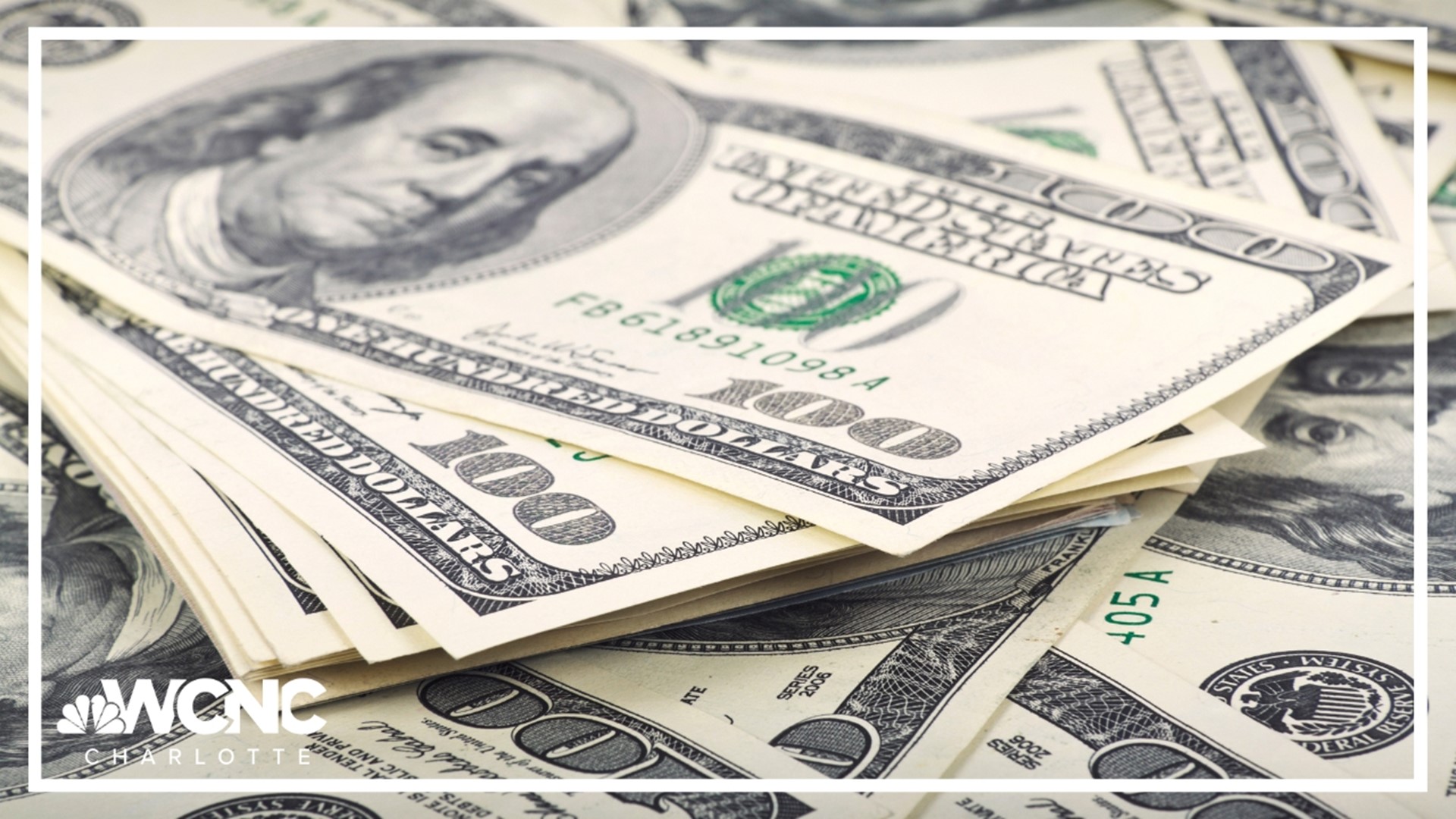CHARLOTTE, N.C. — The federal government put a pause on loan payments on federal school loans with zero percent interest due to the COVID-19 pandemic. When the national emergency came to an end in May, Congress decided not to extend the pause.
Experts from UNC Charlotte's business school spoke on a virtual call last week to discuss North Carolina's economic forecast, including the repayment restart on federal student loans.
"Now all of a sudden, that 200, 300, 400 a month payment comes back in. And you gotta pay it. If you don't pay it, the interest accrues and you get nasty letters from people," John Connaughton, a professor of financial economics at UNC Charlotte, said. "And all of a sudden, that changes people's budgets."
Emily Irwin, a senior director of advice for Wells Fargo, said students should be receiving their first notification with their minimum payment due in a matter of weeks.
"Borrowers at this time need to really get their head in the game. It is going to happen," Irwin told WCNC Charlotte's anchor and reporter Jane Monreal. "The best thing they can do is absolutely be prepared."
Irwin offered several tips for school loan borrowers.
"Start contacting your loan service provider. Understand what your minimum payments for each of your loans, if you have multiple loans, are. Understand where you're going to get those funds to make those minimum payments. And then if you have any additional income that you can throw towards your loans, work with your financial advisor," Irwin suggested.
WCNC Charlotte is always asking "where's the money?" If you need help, reach out to WCNC Charlotte by emailing money@wcnc.com.
She said working with your loan service provider is especially important if you can't make the minimum payments.
"If you're in a position that you do not have the funds to make those minimum payments, by all means, do not go and default on your loan. And default happens after nine months of not making on-time payments," Irwin explained.
Irwin says that defaulting on your loan can have several consequences.
"A default affects your credit history, which not only affects it now, but long into the future. It can affect your ability to borrow for things, like auto loans, home loans, even things like entering into a lease for an apartment," Irwin said. "In addition, you may even have the consequences of garnishment of wages or some withholding if you have a federal tax return owed to you."
She said forbearance or deferment are options you can discuss with your loan provider.
When it comes to interest rates, she said there are several ways they can play into your loan payments.
"You may have loans that have different interest rates. And so you'll want to really evaluate those to determine, are you going to make payments, maybe larger ones, if you have extra funds to those that have larger interest rates right now, as compared to ones that have lower interest rates. In addition, you might also be considering whether or not, consolidation of loans makes sense, looking at the interest rates that you have in effect right now. And then look at what your new interest rate would be. And running those payments to make sure you're not actually paying more in interest is also an exercise that's advantageous to go through."
Although the pause on payments was interest-free, Irwin said they started accruing interest again on Sept. 1.
"So if you're in a position that you're really working off an income-driven repayment type of plan, and you're looking into the considerations of what is your income, what is your debt, maybe what's your family situation, you're going to have to make sure that whatever income may, whatever interest may be forgiven at the end of your loan, isn't in fact, taxable to you," she said. "So you'll want to work with tax professionals or advisers to understand the consequences of that before you make any permanent changes."
The Wells Fargo senior director suggested if you're having trouble getting in touch with your loan service provider, go to the federal government website for student aid.
"You're going to be able to do some loan simulations and determine what could a better plan for you be, and even understand if you qualify for it," Irwin said. "That way, when you have the conversation with your loan service provider, you have armed yourself with education."
Contact Jane Monreal at jmonreal@wcnc.com and follow her on Facebook, X and Instagram.
WCNC Charlotte's Where's The Money series is all about leveling the playing in the Carolinas by helping others and breaking down barriers. WCNC Charlotte doesn't want our viewers to be taken advantage of, so we’re here to help. Watch previous stories where we ask the question “Where’s the Money” in the YouTube playlist below and subscribe to get updated when new videos are uploaded.

